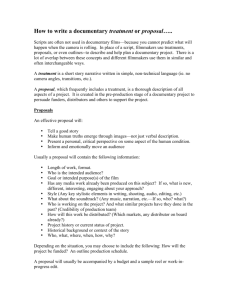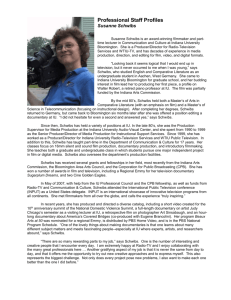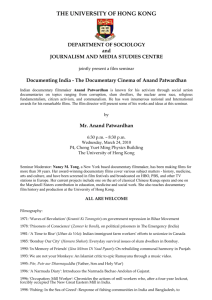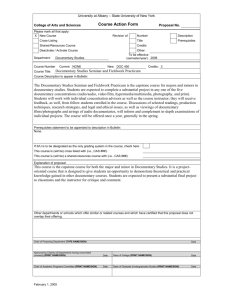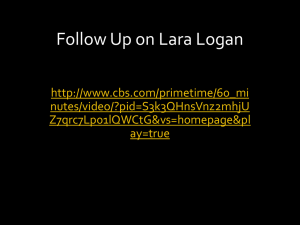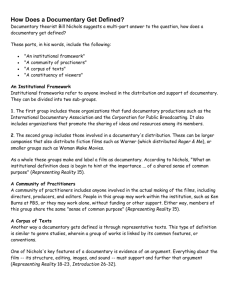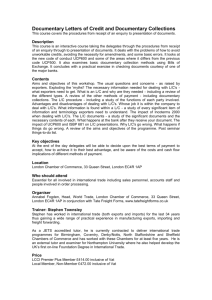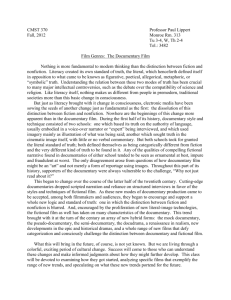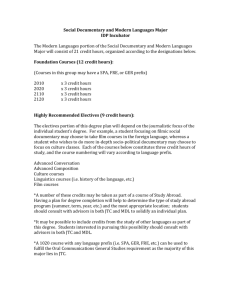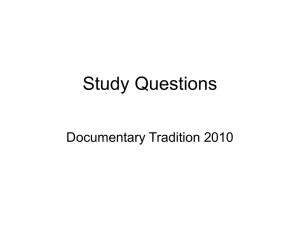Capturing the Friedmans presentation
advertisement
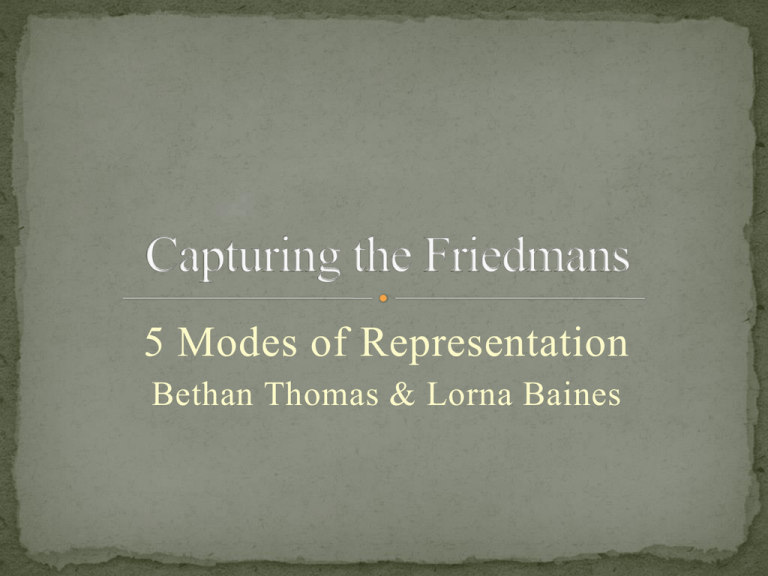
5 Modes of Representation Bethan Thomas & Lorna Baines “In documentary film, four modes of representation stand out as the dominant organizational patterns around which most texts are structured; expository, observational, interactive and reflexive.” Nichols, B. (1991) Representing reality: issues and concepts in documentary. Indiana University Press. P.32. “What does speaking for or on behalf of someone or something entail in terms of a dual responsibility to the subject of the film and to the audience whose agreement is sought?” Nichols, B. (1991) Representing reality: issues and concepts in documentary. Indiana University Press. P.34. “Interactive documentary stresses images of testimony or verbal exchange and images of demonstration (images that demonstrate the validity, or possibly, the doubtfulness, of what witnesses state.” Nichols, B. (1991) Representing reality: issues and concepts in documentary. Indiana University Press. P.44. “Textual authority shifts towards the social actors recruited: their comments and responses provide a central part of the film’s argument.” Nichols, B. (1991) Representing reality: issues and concepts in documentary. Indiana University Press. P.44. Do you think ‘Capturing the Friedmans’ fits more specifically into any of the other modes? Compared to the 2 we have outlined. Do you disagree with our view?


